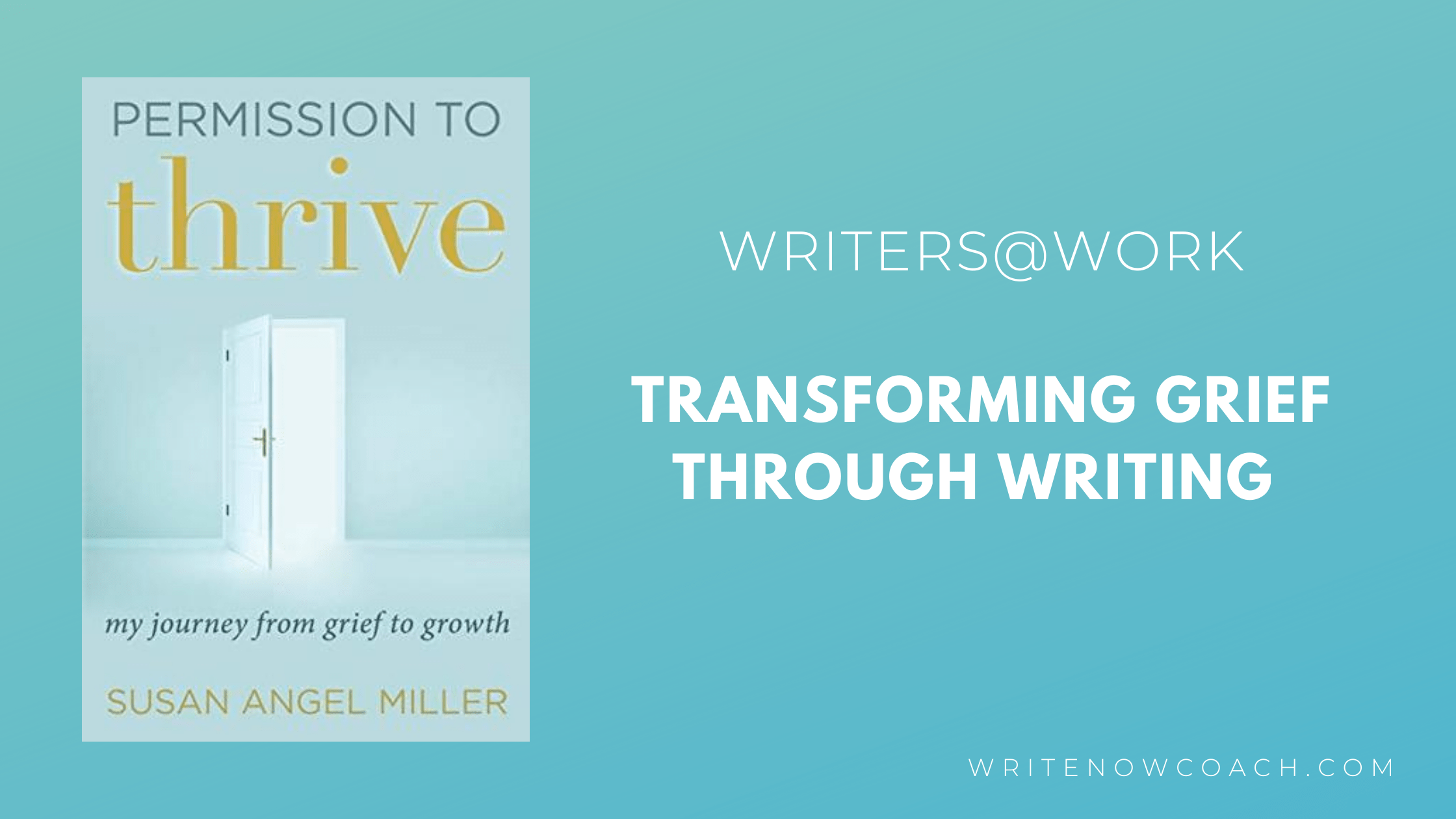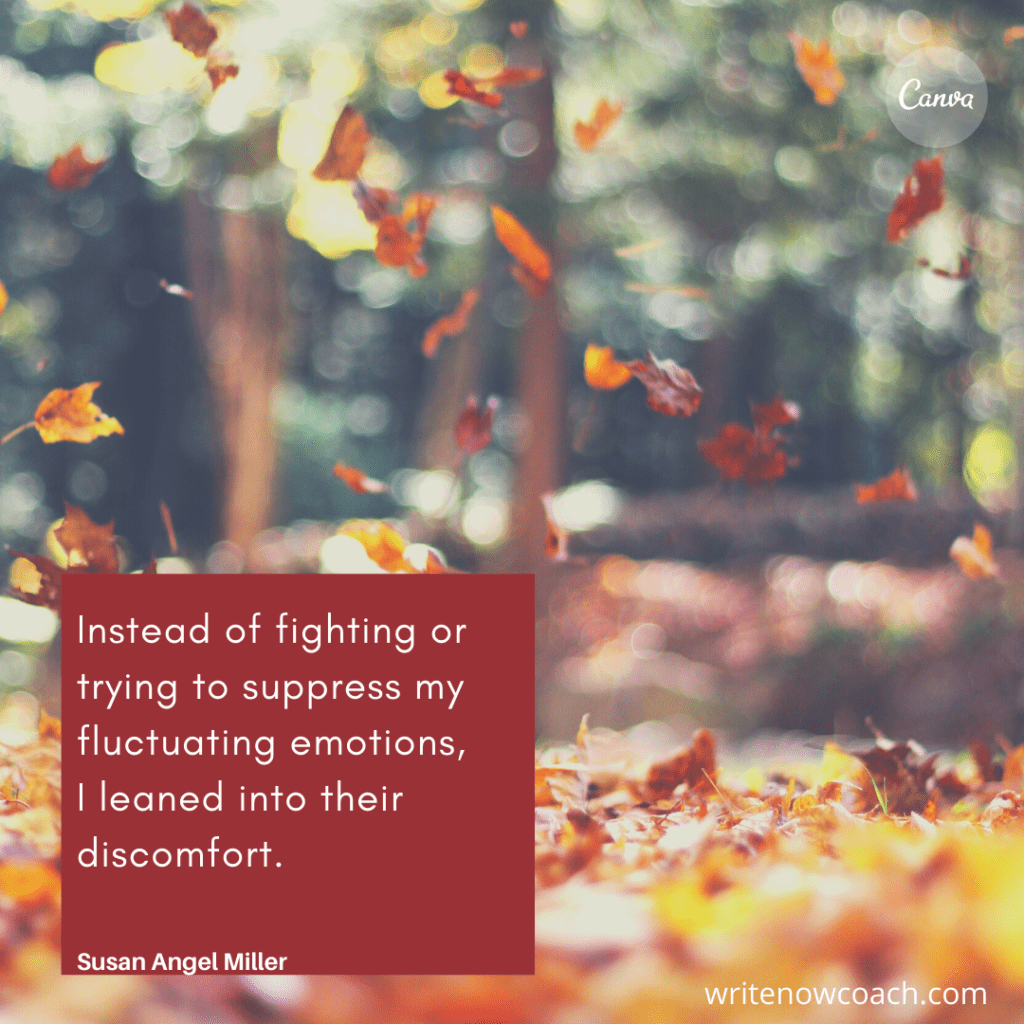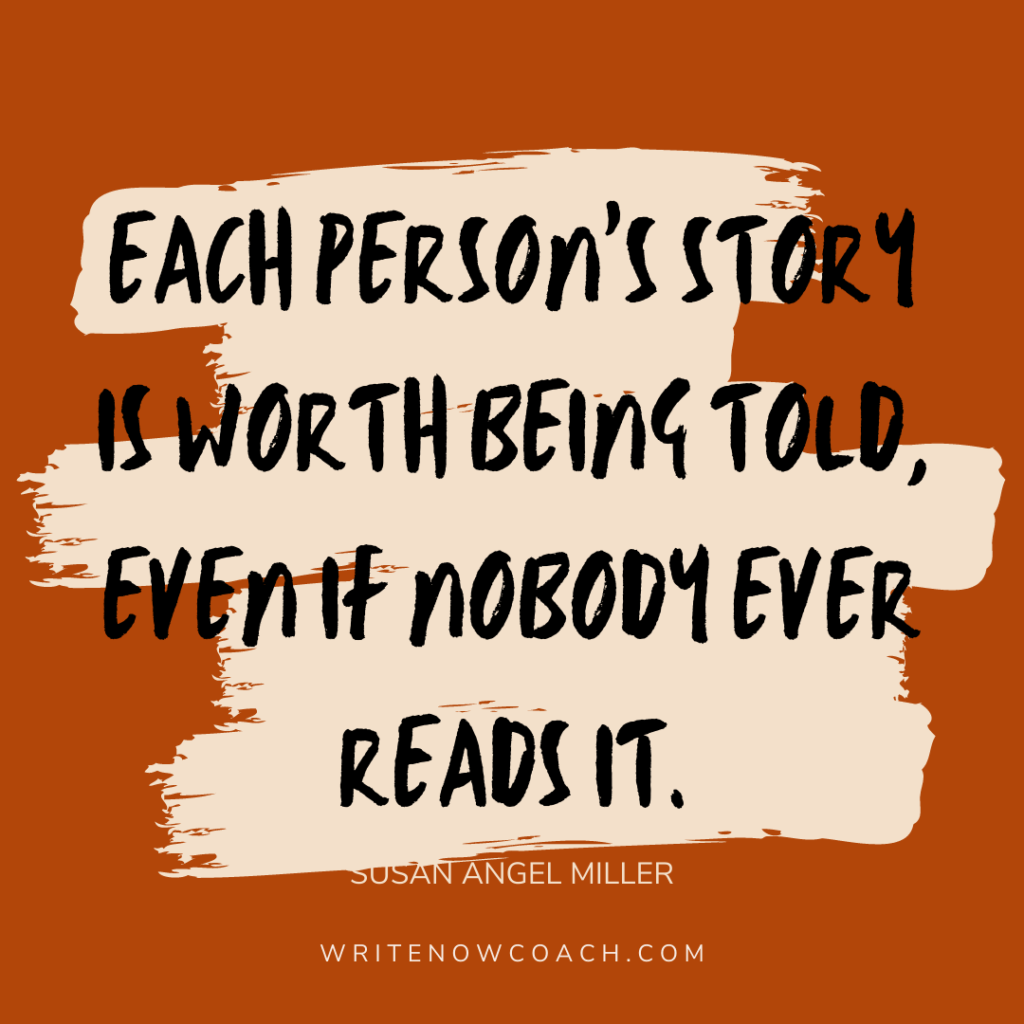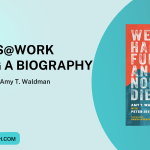Writers@Work: Transforming Grief Through Writing
September 22, 2020
Note From Rochelle
Dear Writers,
This fall, I’d like to feature more interviews with writers. If you’re a writer who has a book coming out, who has landed an agent, or who has a unique take on writing—email me. We’ll get you scheduled for a post!
Today, I’m delighted to welcome Susan Angel Miller to talk about how a tragic life event led her to write a book.
Enjoy!
Rochelle

Writers@Work: Transforming Grief Through Writing
An Interview with Susan Angel Miller
by Rochelle Melander
Can you tell readers about the events in your life that led you to write your book, Permission to Thrive: My Journey from Grief to Growth?
In 2009 my life was turned upside down when on an ordinary Wednesday morning, my 14-year old, and oldest, daughter Laura was rushed to the hospital after having a seizure. Other than complaining about increasingly painful headaches over the past few weeks, she was a healthy teenager. Later that day, a doctor at the hospital told us that she had a brain tumor which could be removed. Despite their encouraging words, by the end of the day, she had stopped breathing. Three agonizing days later she was declared legally brain dead.
In the blur and despair of the next few weeks and months I turned to writing as a way to remember aspects of Laura I was afraid I’d forget and to express my fears about another tragic event happening to my family.
One glimmer of light in those dark days arose from our decision to donate Laura’s organs. Laura’s liver ended up saving the life of a woman in upstate New York with whom we have since developed a special bond. We are incredibly grateful for this relationship, which gives some meaning to the meaningless.
You talk about post-traumatic growth. Can you share with our readers what that is about and some of the practices that helped you get there?
Five years after Laura’s death I learned about the idea of post-traumatic growth (PTG), an area of positive psychology that had been studied in the mid-1990s by two professors at UNC-Charlotte.
Over the previous years, I had been feeling guilty that even after surviving a parent’s worst nightmare, we were still continuing to live productive lives. Although I had never before heard the term post-traumatic growth, I understood this phrase’s hopeful message and exhaled with relief.
Following a trauma or significant loss, post-traumatic growth presents itself in a variety of ways, including more appreciation for life generally, deeper and more loving relationships, a stronger sense of one’s personal strength, a change in life goals or priorities, and a deeper sense of spirituality. I had experienced many of these feelings. I no longer felt as alone.
This growth hadn’t occurred without effort. It was mainly through struggling with the painful emotions and working to create a new framework for living out the remainder of our lives which led to us gaining wisdom and meaning.
Taking mindfulness classes also helped me calm my brain, keep myself grounded in the present moment, and learn to accept the painful feelings. Instead of fighting or trying to suppress my fluctuating emotions, I leaned into their discomfort.

Do you have any advice or tips for readers who have gone through a difficult experience and want to write about it?
Talking with friends, writing, art, and music are proven grief and trauma coping strategies. For me, talking with friends in those early months and years helped when nothing else would, and when I eventually tired of talking, writing provided me with another way to integrate my experiences into my altered life and share them with others.
While writing Permission to Thrive: My Journey from Grief to Growth, I did not follow a straight or logical path. My husband, in fact, insists that I could have written three books in the time I took to write one. That’s OK with me. On some days the words flowed faster than my fingers could type, and on others I struggled to even write a page.
In my first draft I used my grief and resilience research to frame the narrative but eventually pivoted to just telling our story with as many details as I could recall. Readers have since confirmed that I took the right approach. Through reading about my specific traumatic story, they’ve given themselves permission to contemplate and gain perspective on their own.
Each person’s story is worth being told, even if nobody ever reads it, and I was determined to publish my hopeful message and record the events as I remembered them – for my two younger daughters, their future children, and others who I hope might benefit. By writing about these traumatic events, I’ve been able to shape how I perceive them.

We’ve all shifted our approach to marketing during the pandemic. I know you speak quite a bit. What has your speaking and marketing looked like in 2020?
How I deliver my message during the pandemic has changed, but the need for learning from each other is more relevant than ever. Since my last speaking event in mid-February in Denver, my presentations have shifted to online webinars and interactive sessions for various audiences, including book club members, medical personnel, and organ donor families and recipients.
I also recently recorded my audiobook, which will be released in early October.
I look forward to hosting in-person events again, but in the meantime I’ve discovered some surprising benefits of the online format, including that attendees (and I!) can participate easily from the comfort of home, and I connect with others who are located in places that I may have never otherwise been able to visit. My primary focus, as always, is to create a safe virtual space in which participants can feel comfortable sharing their experiences.
What are you reading now?
I recently re-read Viktor Frankl’s Man’s Search for Meaning, a story of resilience and humanity in the face of incredible adversity, I also highly recommend George Bonanno’s The Other Side of Sadness: What the New Science of Bereavement Tells Us About Life After Loss.
About the author:
 Susan Angel Miller is the author of the memoir Permission to Thrive: My Journey from Grief to Growth. Her book can be purchased through susanangelmiller.com, and she can be reached at susan@susanangelmiller.com.
Susan Angel Miller is the author of the memoir Permission to Thrive: My Journey from Grief to Growth. Her book can be purchased through susanangelmiller.com, and she can be reached at susan@susanangelmiller.com.














